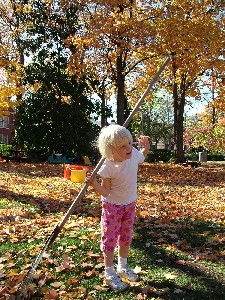 This month, my parents determined that they would take part in a new household program. Before anyone can use an electronic (computer, TV, Xbox), they must complete their daily chore. This is a solid system, but has both its ups and downs. Chores are important building blocks to responsibility, but should be done certain ways to maximize the resulting lesson.
This month, my parents determined that they would take part in a new household program. Before anyone can use an electronic (computer, TV, Xbox), they must complete their daily chore. This is a solid system, but has both its ups and downs. Chores are important building blocks to responsibility, but should be done certain ways to maximize the resulting lesson.
- Try to set up an organized system. If there is no pattern, the system will fall to shambles quickly. I personally am a scheduled person and like to know what will be happening in advance. For example, we have a chart in the closet. The chores vary day by day, but the week’s worth are posted on the first day of the cycle. That way, I can determine what I am doing on the first day and if I choose to, get it done immediately. At the same time, having a system with the same chore every day is boring and repetitive, so it will be non-productive and easily cheated.
- Make the tasks fit the person. The tasks should be menial, but not too boring or hard. If they are fun and not menial, no one will learn responsibility because it is fun. At the same time, if the chore is something too boring or hard, like cleaning the toilet, it will only breed hatred and dissent. Also, the chores should be adjusted to each child to some degree. For example, kids who like cleaning shouldn’t have to clean. At the same time, don’t assign massively different levels of work to the kids. This will cause more dissent and hatred.
- Work in a reward system. If a kid does something well, a reward should be given. The system should be prearranged, though. So, if a kid is a having trouble with grades, they could be offered three “no chore today cards” if the grades improve. But, there must be REWARDS OFFERED TO ALL KIDS IF THEY ARE OFFERED TO ONE. Nothing irritates me more than a kid being offered a reward because they “need incentive” while a kid who is already doing well gets nothing. It’s not that it is unfair, it is counterproductive. In the real world, you are offered bonuses because you are good, not because “you can do better.” That only teaches the kids who do well that they can be more successful by occasionally doing worse before going back to normal, which gets you nothing in the real world.
Chores are important to learning, but if they are done wrong, they can do more harm than good.










